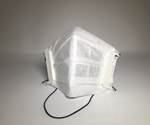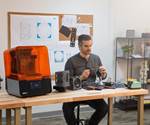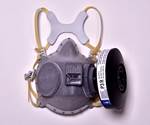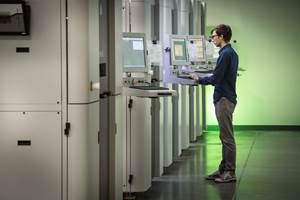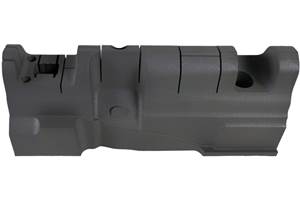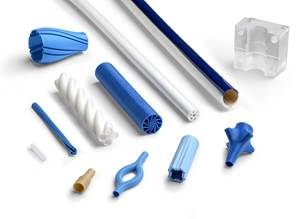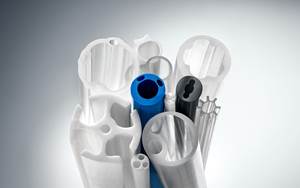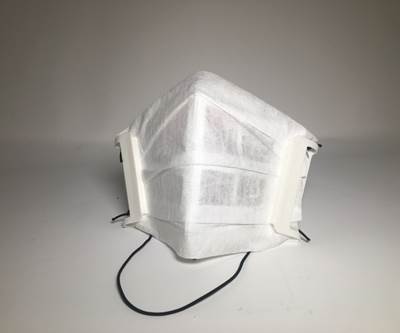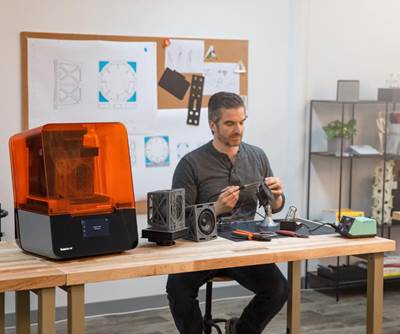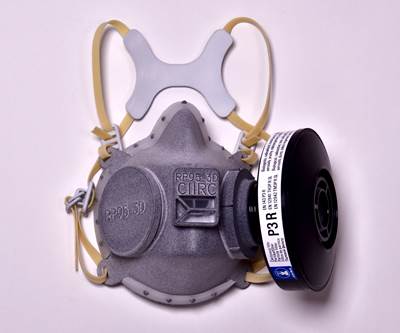Materialise Develops 3D Printed Oxygen Mask to Address Shortage of Ventilators
The Materialise NIP Connectors will be manufactured at the company’s certified printing facilities in Belgium and Plymouth, Michigan and on-site 3D printing facilities of qualified partners. Materialise is looking for partners to get this solution to as many patients as possible.
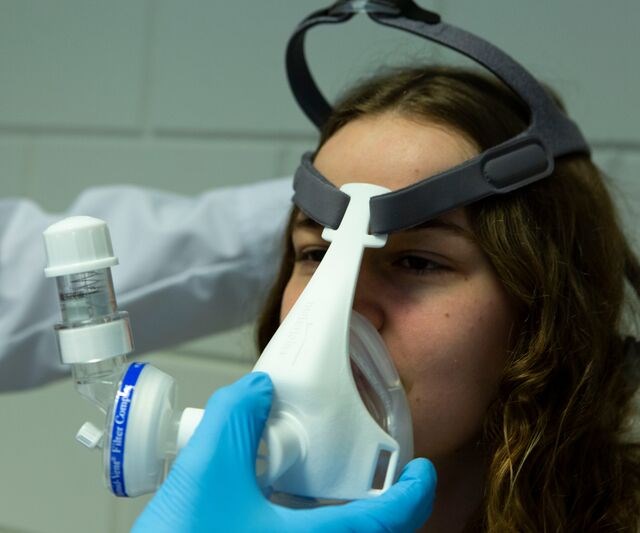
3D printed non-invasive PEEP mask (NIP).
We’ve been actively reporting on how the manufacturing industry is providing much needed equipment and supplies to combat COVID-19. And 3D printing providers are taking a big role in this.
In response to this ventilator shortage, Materialise, a Belgium-based 3D printing company, has developed the Materialise NIP Connector, a device to convert standard equipment available in most hospitals, into a mask to facilitate breathing for patients by creating positive pressure in the lungs. These assembled masks allow clinicians to reduce the time patients need access to mechanical ventilators, which helps to reduce the strain on ventilator supplies. Materialise has decades of experience in certified medical 3D printing and is now fast-tracking the regulatory registrations that are crucial to ensure the safety of patients and caregivers. The company expects to have the device broadly available for hospitals by mid-April.
Around the world, hospitals are looking for medical equipment capable of delivering air with added oxygen to treat critically ill coronavirus patients. Currently this treatment is carried out using mechanical ventilators, which are critically under-supplied. As a result, clinicians today are exploring different methods to apply positive end expiratory pressure (PEEP) to the lungs of COVID 19 patients without the use of a ventilator.
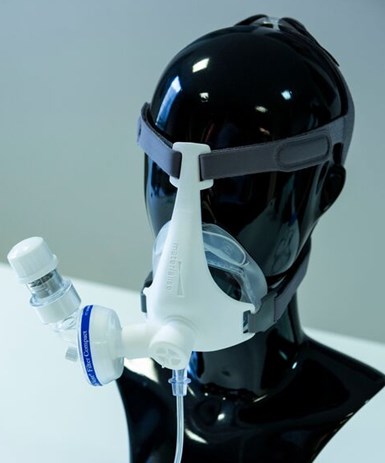
The company’s NIP connector device converts standard equipment available in most hospitals, into a mask to facilitate breathing for patients by creating positive pressure in the lungs.
Materialise has developed a solution to deliver oxygen and create high positive pressure without the use of a ventilator. A 3D printed connector converts standard equipment already available in most hospitals into a non-invasive PEEP mask (NIP) that can be connected to the oxygen supply (to facilitate breathing for coronavirus patients). This solution gives patients an extended period of time before mechanical ventilators are required for treatment, and helps transition them off ventilators earlier, freeing up these devices for patients in critical need. By using standard medical equipment, including a non-invasive ventilation (NIV) mask, a filter and a PEEP valve, the solution is said to be a simple and familiar to use for medical professionals.
Certified Medical Manufacturing
The company says that it is critical to comply with regulations to ensure the safety of patients and caregivers. Materialise is now fast-tracking the regulatory registration (in Europe and the U.S.). Materialise is also supporting a clinical trial to test the clinical impact of its use on COVID-19 patients and expects first results to be available within the next two weeks.
“3D printing is playing a crucial role in fighting the global coronavirus pandemic by making it possible to develop innovative solutions and have them available worldwide very quickly,” said Brigitte De Vet, Vice President of Materialise Medical.
“At the same time, it is crucial that the medical products we put on the market are safe and effective. Materialise has decades of experience in certified medical 3D printing which allows us to bring 3D printed devices to the market quickly and safely.”
The 3D printing company is upscaling its production capability to make the solution available broadly and quickly to hospitals that are looking for an emergency solution. The Materialise NIP Connectors will be manufactured at the company’s ISO 13485 certified facilities in Belgium and Plymouth, Michigan and on-site 3D printing facilities of qualified partners. Materialise is looking for partners to get this solution to as many patients as possible.

As travel and transport become more difficult and speed is of the essence, the ability to manufacture locally becomes more important. In this case, the product was designed in Belgium and can be printed at a Materialise certified facility, or at a hospital that has the capability to do so in a reliable manner.
In addition to the NIP solution, Materialise engineers have developed several innovations to support treatment and containment of the coronavirus, including:
- A 3D printed door handle attachment, which allows users to open doors using covered forearms rather than bare hands in an effort to reduce direct contact with potentially contaminated shared door handles.
- A 3D printed shopping cart handle to allow users to steer carts with their arms rather than touching handles with bare hands.
- A 3D printed connector to adapt Scuba masks to allow for air filtration and oxygen supply.
Related Content
Getting into Plastics Additive Manufacturing? Avoid these Six Common Errors
There are a lot of 3D printing technologies out there, and it’s not uncommon for processors new to additive manufacturing to get tripped up. Here are some typical snafus, along with advice on how to avoid them before you start making parts.
Read More420 Stainless Steel Now Qualified With TrueShape 3D Printing Technology
NPE2024: Mantle's additive manufacturing technology is designed for precision tooling.
Read MoreDuPont Buys Medical Product Manufacturer Spectrum Plastics
Purchase price of $1.75 billion for leading supplier of extruded, molded, and 3D printed medical components.
Read MoreMedical Manufacturer Innovates with Additive Manufacturing and Extrusion Technology Hubs
Spectrum Plastics Group offers customers two technology hubs — one for extrusion, the other for additive manufacturing — to help bring ground-breaking products to market faster.
Read MoreRead Next
Essentium Produces 3D-Printed Face Mask with Resuable Frame for First Responders
The first run of 500 masks will be delivered to the Pflugerville Police and Fire Department next week following an order from the City of Pflugerville’s Pflugerville Community Development Corp.
Read More3D Printing Helps Keep Production Going During the Coronavirus Crisis
Formlabs and Essentium both discuss how their companies are responding to the COVID-19 crisis and how 3D printing can help eliminate potential supply chain disruption.
Read MoreHP is 3D Printing Parts to Help Battle the Coronavirus Pandemic
Many 3D design files to be made freely available to accelerate critical parts production.
Read More

